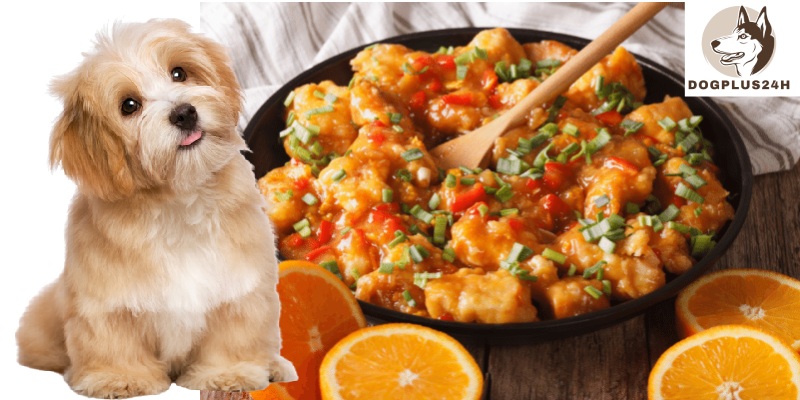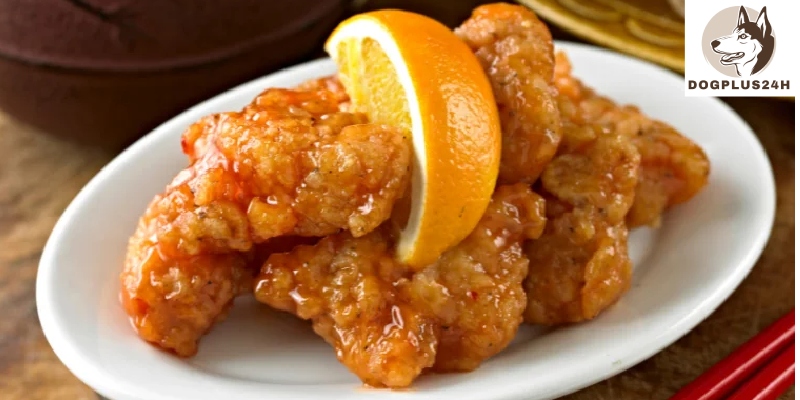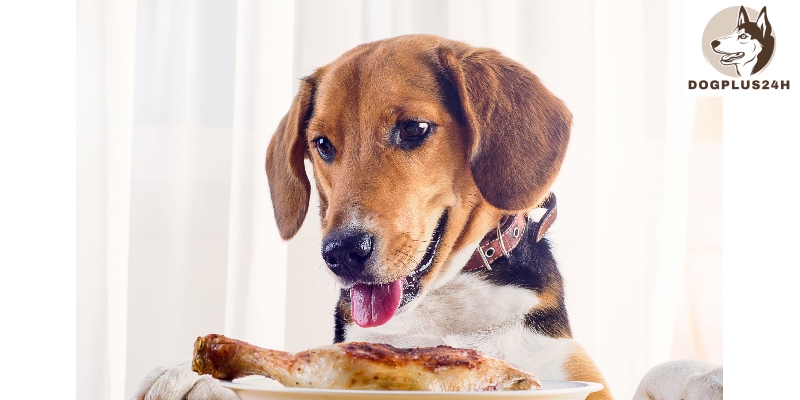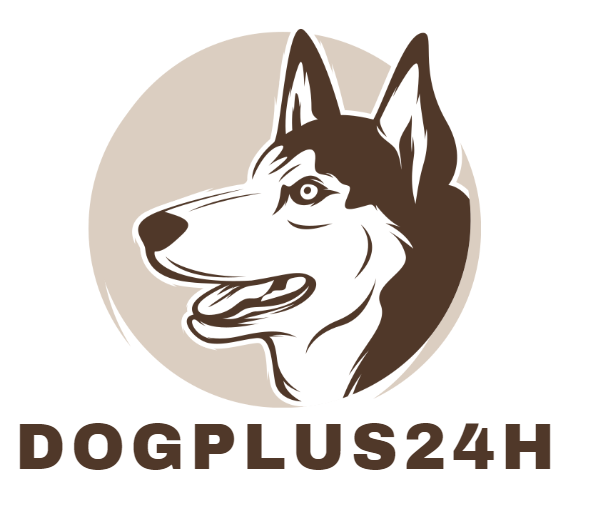Can dogs eat orange chicken? Dogs should not eat orange chicken due to the ingredients used in the dish which are not safe for dogs. Some ingredients can be toxic to dogs if eaten in large quantities. In this article, we will explain why this food is not good for dogs.
What is orange chicken?
Orange chicken is a famous Chinese-American cuisine that consists of bite-sized chunks of breaded and deep-fried chicken that has been coated with a sweet orange-flavored sauce. It is well-known for its crispy chicken and delicious sauce.
This meal is thought to have originated in North America, and it is not a conventional Chinese cuisine, but rather a hybrid of Chinese and American culinary traditions. It’s a popular dish at many Chinese-American restaurants, and it’s also accessible in certain fast-food establishments.

Orange chicken is made with orange juice, soy sauce, sugar, vinegar, ginger, and garlic and is eaten with rice or noodles. This is a popular takeout or dine-in option at restaurants. Keep in mind that because ingredients and preparation methods may differ, the flavor and texture of orange chicken may vary from facility to facility. Can dogs eat orange chicken? Continue reading this post.
Can dogs eat orange chicken?
Can dogs eat orange chicken? No, because the sauce contains dangerous substances, dogs should not consume orange chicken. Making your own sauce and avoiding dangerous components is the only safe approach to giving your pet orange chicken.
Even a small amount of orange chicken might cause digestive issues in your puppy, such as diarrhea and vomiting. If your puppy consumes too many oranges, the high sugar content can cause intestinal discomfort. Cooked bones have been linked to intestinal obstructions in dogs, which can be lethal.
Garlic and onions are used in many Chinese cuisines, including orange chicken. These substances are extremely hazardous to dogs because they damage the red blood cells that transport oxygen throughout the body. If your dog consumes any Allium family member (garlic, onions, shallots, chives, and leeks), he may become anemic.
Sugar
Sugary foods should not be fed to your dog since they are bad for his teeth and can lead to tooth damage, weight gain, and diabetes. Some Chinese recipes are higher in sugar than in salt.
Spice
Dogs’ digestive systems are extremely sensitive, thus they respond negatively to spices since their bodies are unable to metabolize them. Spices used in the human diet frequently induce digestive issues, resulting in vomiting, diarrhea, dehydration, and abdominal pain in dogs.
Oils and fats
The chicken in orange chicken is fried in oil and fat, which are particularly hazardous to puppies’ health. Pancreatitis can develop if your dog consumes too much high-fat diet. Because the pancreas gets inflamed, this illness causes pain in dogs.

Soy sauce and salt
Both soy sauce and salt have significant sodium levels. High sodium consumption not only causes thirst and dehydration in dogs, but it can also lead to more dangerous illnesses such as hypernatremia and sodium ion poisoning.
What should I do if my dog eats orange chicken?
Can dogs eat orange chicken? It’s nothing if your dog nibbles a bite or two. Your dog will most likely be fine and only require a small treat, at least by dog standards.
Just make sure you have enough clean, fresh water on hand for your dog to drink whenever he gets thirsty. If you want to be extra cautious, feed it rice and boiling lean meat the next day.\
You’ll have to keep an eye on your dog for the next few hours if you leave a plate of orange-flavored chicken on the table, go wash your hands, and then magically return without a trace.ư
Keep an eye out for indicators of salt toxicity and pancreatitis in particular. If your dog starts vomiting, becomes lethargic, has stomach pain, or exhibits any of the other symptoms listed above, take him to the vet right away.
What happens if my dog eats too much orange-flavored chicken?
Can dogs eat orange chicken? A diet high in orange chicken can cause major health issues in your dog. A bite or two is unlikely to be harmful unless the sauce contains garlic, which is toxic to dogs. If your dog becomes ill or has an upset stomach after eating orange chicken, feed him a bland diet for the next 24-48 hours.
Salt poisoning
Dogs should not exceed 1.5 grams of salt per pound of body weight. Chinese cuisine, like orange chicken, can have unusually high salt levels. Salt poisoning symptoms include:
- Drink a lot of water
- Confusion
- Thirsty
- Urinate a lot
- Lack of energy
Salt toxicity necessitates prompt veterinary attention. Treatment will differ depending on the amount of salt taken.
Giving your dog modest amounts of fresh water on a regular basis will assist him in naturally eliminating salt from his body in mild cases. In extreme circumstances, your dog may require hospitalization for oxygen and hydration therapy.
Pancreatitis
A high-fat diet can trigger pancreatic inflammation in your dog. The following are common symptoms of pancreatitis in dogs:
- Vomiting
- Diarrhea
- Anorexia
- Fever
- Comatose
- Stomach-ache
Pancreatitis can be life-threatening in dogs and should be considered a medical emergency.

Weight gain and obesity
Eating too much sugar from foods like Thin Mints or sugar cane, like eating too much fat, will induce weight gain and eventually lead to problems including metabolic alterations, obesity, and diabetes.
When a dog has Type II diabetes, it will not be able to process sugar due to the pancreas’s inability to produce insulin.
In conclusion – Can dogs eat orange chicken?
Can dogs eat orange chicken? If you’re wondering whether dogs can eat orange chicken, the simple answer is probably not. The high fat and sugar content demonstrates this, as neither is good for dogs in moderation. Excessive fat and sugar consumption can and will cause both short-term complications like pancreatitis and long-term problems like obesity and diabetes.
There’s nothing wrong with giving your puppy treats every now and then, but the best way to ensure he lives a long, healthy, and happy life is to always feed him dog food.


